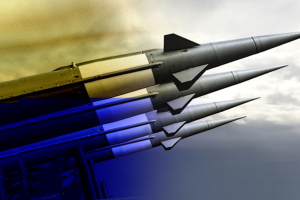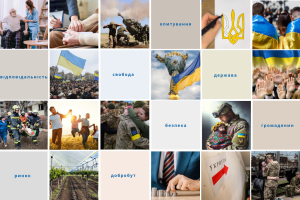Regional public opinion poll was conducted by Ilko Kucheriv Democratic Initiatives Foundation together with the Center for Political Sociology (using network of Ukrainian Sociology Service) in the government-controlled areas of Donetsk and Luhansk regions between February 18 – March 2, 2020. In every region 500 respondents were polled based on a sample that represents the adult population (except the occupied territories). The sample is representative of such indicators as sex, age, education and place of residence. The theoretical sample error does not exceed 3.5%. Survey was conducted due to financial support from the UK Embassy in Ukraine.
KEY FINDINGS
Residents of the government-controlled areas Donetsk (Donetsk GCA) and Luhansk (Luhansk GCA) have moderate assessment of their current life’s situation. 43% of the respondents from the Donetsk GCA and 41% from the Luhansk GCA stated that the situation is satisfactory, with certain difficulties, and 38% of Donetsk and 37% of Luhansk respondents considered it as insecure, with considerable problems (but not too critical). Extreme assessments (absence of problems/severe problems) were made by few respondents.
Public perception of the general situation in Donbas is dominated by negative sentiments. In Donetsk GCA 54% of respondents described the situation as tense, and 12% - as explosive. In Luhansk GCA respective figures were even higher - 63% and 13%.
Majority (58%) of respondents from the Luhansk GCA thought that there were no changes since presidential and parliamentary elections in 2019 while 29% said situation became even worse. Also, relative majority of respondents from Donetsk GCA admitted they did not notice changes for better (41%) or said situation became worse (19%). At the same time 37% of Donetsk respondents said they saw certain improvement. Hence, the assessment of the residents of the Luhansk GCA turned out to be much more pessimistic.
When we look at concerns of the Donbas residents, we can see that 50% respondents from the Donetsk GCA were afraid of diseases (same fear was shared by 31% of Luhansk GCA respondents). Meanwhile major issue for 40% of respondents from Luhansk GCA was recurrence of war hostilities (same concern was admitted by 45% Donetsk GCA respondents).
Fear of suspension of payments and pensions of respondents in the respective oblasts) was also at the top of typical concerns for the Donbas residents (for 50% in Donetsk and 39% in Luhansk regions). One third of Luhansk GCA respondents (33%) was anxious about possibility unheated apartments in winter which is a positive development if compared with 41% in 2018.
If we compare what made Donbas residents concerned in 2018 with the current poll results, we can see that there are number of issues that turned to worse.
For instance, in Donetsk GCA more people are concerned about growth of crime (from 18% to 33%), unemployment (from 10% to 31%), business closures (from 30 to 38%), famine (from 26% to 38%), mass riots (from 22% to 33%), non-payment of salaries and pensions (from 35% to 50%), disintegration of Ukraine (from 17% to 34%), war hostilities (from 31 to 45%), oppression of the Russian language (from 11 % to 20%), accession to NATO (from 10% to 28%), collapse of government (from 5% to 20%).
Although changes in opinion about threats are less visible in the Luhansk region, they are still alarming. More people are afraid of crime growth (from 7% to 13%), unemployment (from 15% to 21%), Russian attack (from 2% to 9%), business shutdowns (from 7% to 14%), the collapse of Ukraine (from 9% to 19%), collapse of government (from 2% to 15%).
Greater pessimism among the population of the Luhansk region is also illustrated by their opinion about progress in solution of the local problems.
While 43% of respondents of the Luhansk GCA said that practically nothing was done to solve problems in their communities and 30% said that attempts of local authorities to solve problems were mostly unsuccessful. At the same time only 17% of respondents of the Donetsk GCA thought that nothing has been done and 26% complained about failed attempts performance of the local authorities.
Comparison of the recent poll data with the poll data obtained in November 2018 shows that people in the Donetsk GCA experienced some improvement of their living conditions in the last 14 months (share of respondents who said that some problems have been solved increased from 31% in 2018 to 47% in 2020 while share of respondents who said that nothing has changed decreased from 23% to 17%). At the same time self-assessment of well-being of the people from the Luhansk GCA deteriorated (share of respondents who admitted failed attempts of the local authorities to solve problems increased from 21% to 30 while share of those who thought that nothing has changed remained quite high - 43%).
Among problems that should be addressed immediately respondents in both surveyed regions mentioned, by large margin, reopening of enterprises and creation of new jobs. These points were selected by almost 65% of respondents in both regions. Moreover, the frequency of mentions of these problems have increased markedly in comparison to 2018, when 44% of residents of the Donetsk and 54% of the Luhansk oblasts pointed out them.
Growth of wages, pensions, and social benefits (37% of respondents) were among other most urgent problems in Donetsk oblast, while the demand for restoration of destroyed infrastructure (55% of respondents) was observed in Luhansk oblast. These figures remained approximately the same since 2018 when 32% of Donetsk and 59% of Luhansk oblast residents mentioned them.
Improvement of the healthcare services was demanded by 35% of respondents from Donetsk while 35% of respondents from Luhansk region were looking forward to increasing of salaries, pensions and social benefits. It is worth mentioning that urgency of these demands has not changed since 2018.
Poll revealed that respondents from the Donetsk region were more satisfied with solution of the local problems than respondents from the Luhansk region. Although shares of Donetsk GCA residents who admitted solutions of certain problems were low (22% mentioned reconstruction of destroyed infrastructure, 20% normal functioning of public services, 17% solving the problems of temporarily displaced persons, 11% attracting investments, 10% - ensuring law and order and combating crime), they were higher than respective shares of the residents of the Luhansk GCA.
Comparison of 2018 and 2020 polls shows such tendencies.
While there were no significant changes in assessment of solution of the local issues in Luhansk GCA, in Donetsk GCA we detected:
- Substantial decrease in positive assessment of reconstruction of the destroyed infrastructure in (from 43% to 22%), healthcare services (from 12% to 3%), organization of defense (from 10% to 3%), law and order (from 18% to 10%);
- Relative improvement of solution of problems of displaced persons (from 9% to 17%), and investment inflow (from 4% to 11%).
In Donbas negative opinion about solution of the local problems is accompanied by frustration with human rights protection.
70% of respondents from Donetsk GCA and 50% of respondents from Luhansk GCA agreed that their rights were violated. Only 24% of respondents in Donetsk region and 38% in Luhansk region said they did not have such feeling.
Categories of the most affected rights mirror concerns of the Donbas residents. 55% of respondents in both regions said they felt their economic and social rights have been violated. Also, in both regions similar number of people dissatisfied with protection of personal security (27% in Donetsk and 21% in Luhansk region).
At the same time, we found differences in opinion about violations of rights among Donetsk and Luhansk respondents. For instance, while 44% of Donetsk region respondents complained about their environmental rights, only 6% of Luhansk region respondents mentioned this category. Also, in Donetsk GCA people (33%) are more concerned about violation of their right to use their native language than in Luhansk GCA (7%). Additionally, more Donetsk GCA respondents (28%) admitted problems with their right to freedom of speech and expression than in Luhansk GCA (10%).
Prevalent negative assessment of living conditions and poor protection of different rights and freedoms have little impact on protest behavior in Donbas.
As a matter of fact, 41% of respondents from the Donetsk GCA and 40% from the Luhansk GCA region did not foresee mass protests and rallies in their communities. 33% of respondents the Donetsk GCA and 39% in the Luhansk GCA believed that such actions were impossible. Only 19% of the Donetsk GCA respondents and 16% of respondents from the Luhansk GCA saw high probability of protests.
In case of hypothetical protests in their communities 46% of respondents from the Donetsk oblast and 29% of respondents from the Luhansk oblast expressed their readiness to support such actions (in Donetsk 29% could support protests and take part in them and 17% would just support them; in Luhansk respective figures are 17% and 12%). That means that despite better living conditions Donetsk GCA residents were more likely to protest in comparison to residents of Luhansk GCA.
The main issues that could trigger mass protests in Donbas are increase of utility tariffs (59% of respondents from Donetsk and 57% from Luhansk regions admitted this factor) closure of enterprises (47% of inhabitants of the Donetsk and 32% of the Luhansk oblast mentioned this issue); about ¼ of respondents (24% in the Donetsk and 25% in the Luhansk region) attributed the deterioration of health care services to possible causes for participation in protest actions.
When people were asked what kind of state assistance, they would prefer majority opted for discounts and subsidies for necessary goods and additional cash payments. Only 20% in Donetsk GCA and 5% in Luhansk GCA said they would like to have interest-free credit for starting their own businesses.
Opinion poll in Donbas revealed dramatic changes in attitudes toward Russia and conflict. Today, 76% of Donetsk respondents recognized Russia Federation as a participant of the conflict while in 2018 such opinion expressed 57%. When asked whether Ukraine and Russia were in war 64% of Donetsk respondents agreed while only 20% disagreed.
It is not surprising that in Donetsk GCA more people pointed out direct forms of Russian involvement in war:
- 46% said that Russia had complete control over the "DPR / LPR" leadership;
- 40% said Russia provided humanitarian aid;
- 37% said Russia supplied weapons to DNR troops;
- 35% said Russia supported DNR by diplomatic means;
- 33% said Russian army fought side by side with DNR.
Meanwhile public opinion in Luhansk region became more polarized. In 2018 only 41% said Russia was involved in conflict and 31% disagreed with such statement. In 2020 47% of Luhansk GCA respondents agreed that the Russian Federation is a participant but 39% denied Russian involvement. The same picture we have with recognition of war between Ukraine and Russia. While 38% respondents believed that Ukraine and Russia were in war, 43% said they were not.
As for the ways of Russian involvement in the conflict Luhansk GCA respondents had different opinion:
- 44% said that Russia provided humanitarian aid;
- 33% said that Russia supplied weapons to LNR troops;
- 32% said Russia supported LNR by diplomatic means;
- 20% said that Russian army fought side by side with LNR and that Russia directly controls LNR leadership;
- 33% remained undecided about this topic.
Another crucial shift in Donbas public opinion is that in both Donetsk and Luhansk regions people became more cautious toward possible compromises for the sake of peace. In in 2018 45% in Donetsk and 47% in Luhansk regions were confident that compromises should be made at any price, in 2020 these figures decreased to 14% and 34% respectively. Today, 50% in Donetsk and 49% in Luhansk regions believe that compromises are necessary but not everything is acceptable. It means that public opinion in Donbas became more compatible with mainstream opinion in Ukraine. However, it is worth mentioning that in the last 14 months more people in Donetsk GCA (27%) began to think that the conflict can only be resolved by force.
When people were asked about the ways and means of achieving sustainable peace, new regional divisions emerged.
Residents of Donetsk GCA tended to choose the ways that were more favorable for Ukraine, such as economic and defence build-up (31%) and increase of sanctions on Russia (23%). On the other hand, majority of Luhansk residents were in favor recognizing legitimacy of DNR/LNR (38%) and yielding to Russian demands which means recognition of DNR/LNR autonomy and annexation of Crimea (15%).
Opinion poll revealed that while people in Donbas support idea of direct negotiations with DNR/LNR and granting of special status to pro-Russian entities majority of them strongly object to essential elements of such status and key provisions of the Minsk agreements.
Here are key believes of the Donbas residents:
- Majority of Donetsk (55%) and Luhansk (60%) respondents would accept restoration of trade and transport connection with the uncontrolled territories.
- Direct negotiations with DNR/LNR are acceptable for 49% of Donetsk and 71% of Luhansk respondents.
- Local elections to be held on terms of DNR/LNR leadership are unacceptable for 68% of Donetsk and 35% of Luhansk respondents. It should be mentioned that while 36% of Luhansk respondents are ready to accept such elections only 16% of Donetsk GCA residents agree with such concession.
- Total amnesty to combatants of DNR/LNR is unacceptable for 55% of Donetsk and 50% of Luhansk respondents.
- Enrollment of DNR/LNR combatants to local police forces, courts and prosecutor offices is unacceptable for 60% of Donetsk and 30% of Luhansk respondents. It is noteworthy, that 34% of Luhansk respondents would accept it and 36% remain undecided.
- Special economic and political relations between DNR/LNR and Russia are unacceptable for 55% of Donetsk respondents, while acceptable for 49% of Luhansk respondents.
At the same time Donbas residents are ready to give in to Russian demands that constrain state sovereignty and provoke internal tensions:
- Granting and including into Constitution special status to certain districts of Donetsk and Luhansk regions is acceptable for 48% of Donetsk and 52% of Luhansk respondents.
- Granting Russian language constitutional status of the second state language is acceptable for 60% of Donetsk and Luhansk respondents.
- Approval of the law on neutral and non-bloc status of Ukraine is acceptable for 43% Donetsk and 54% of Luhansk respondents. Still it is unacceptable for 38% of Donetsk GCA respondents. Moreover, in the last 14 months the number of supporters of neutral status of Ukraine in Donetsk region decreased from 53% to 41% while number proponents of NATO integration grew from 21% to 31%. In Luhansk region only 15% of residents support NATO integration.
Hypothetical question about deployment of UN peacekeeping forces on the uncontrolled territories of Donbas also showed polarization and difference between Donetsk and Luhansk residents.
In Donetsk GCA 53% of respondents supported such idea while 31% rejected it and 16% were undecided. In Luhansk GCA public attitudes are very different: 51% rejected this idea and only 30% supported it with 19% of undecided.
We can argue that we have found clue to such polarization when we asked people about their preferences toward possible future of uncontrolled territories and timing of possible reintegration.
In Donetsk GCA 60% of respondents said they would prefer complete restoration of pre-war status of the occupied territories and 57% believed it could happen in the nearest future (in 1-5 years). On the other hand, in Luhansk GCA only 40% would prefer pre-war status for reintegrated territories and only 23% believed this could happen soon. Around 46% of Luhansk GCA respondents said that these territories would never return or could return in remote future.
Majority of Donbas residents are united by hope that permanent ceasefire would have positive impact on their lives. Substantial or slight improvement of life due to the end of war are expected by 64% of respondents in Donetsk and Luhansk regions.
TABLES








